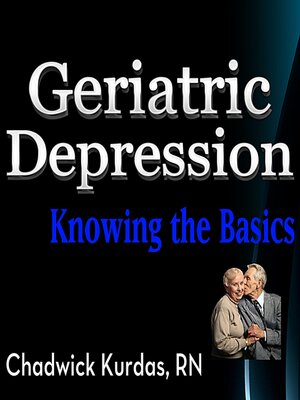
Sign up to save your library
With an OverDrive account, you can save your favorite libraries for at-a-glance information about availability. Find out more about OverDrive accounts.
Find this title in Libby, the library reading app by OverDrive.



Search for a digital library with this title
Title found at these libraries:
| Library Name | Distance |
|---|---|
| Loading... |
Everyone has bad days every now and then, and sometimes people may have a miserable week, but when these blues last for a long time, sometimes weeks, months, and often years there is a problem. This problem is depression, and it is a serious illness that can impair lifestyles from not wanting to get out of bed in the morning to enticing someone to commit suicide. Depression is syndrome that is a group of symptoms that have been put together to describe what is seen. Although there are no blood tests, brain scans, or any other biological test that can diagnose depression, there are many different symptoms that can. Depression can effect virtually all ages, gender, and ethnicities. Geriatrics people are no exception. Geriatric is considered the elderly or people above the age of 65, and depression is the most common mental illness in this age group. Erik Erikson, a psychosocial therapist, broke down different stages in the human life cycle. His stage for the geriatric is considered, integrity versus despair, which is when the elderly look back on their life experiences or achievements. If all is well and they have met their life expectations, they will have a sense of integrity. If life achievements have not been met this will led to despair. In this paper I will be discussing some of the reasons, symptoms/diagnoses, and treatments options for geriatric depression.







